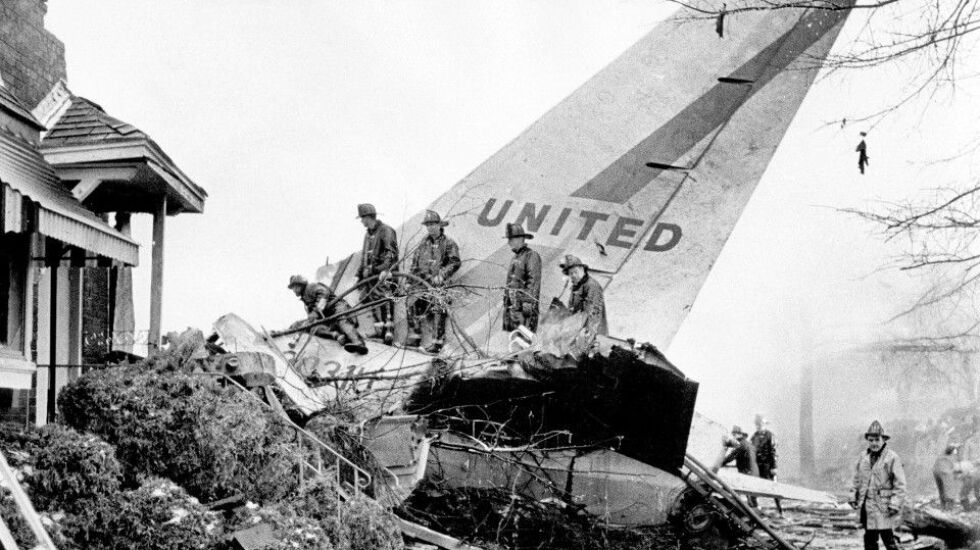
William Davidson was in a third-grade classroom awaiting dismissal from Hurley Elementary School on Dec. 8, 1972, when the ground shook and lights suddenly shut off.
“It was just like someone dropped a big, huge anvil on the ground,” recalled Davidson, who just months earlier moved to a brick home across the street from the Southwest Side school. “It just rumbled through the neighborhood almost.”
The boom the students felt was a commercial plane crashing into a row of homes a block away on West 70th Place. United Airlines Flight 553 had departed Washington, D.C., bound for Omaha, Nebraska, with a scheduled stop at Midway Airport. But just before 2:30 p.m., the 737 jet stalled and fell from the sky — killing 40 passengers, three crew members and a mother and daughter on the ground. The devastating crash leveled some houses, damaged others and almost immediately sparked conspiracy theories.
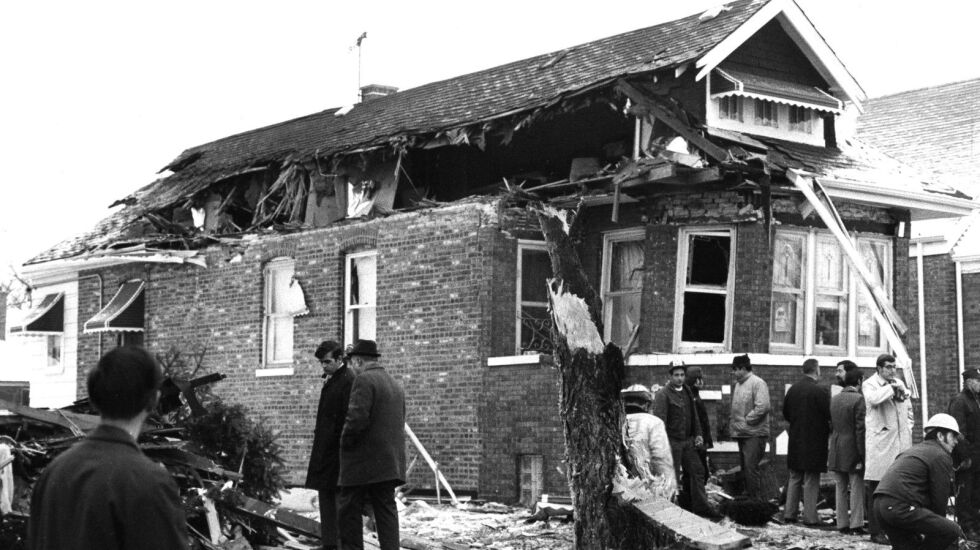
Robert Russo, then a 22-year-old pilot who said he had been flying planes out of Midway since he was 15, recalled hearing early reports of the crash on the radio. Russo said he immediately drove to the accident and, when he arrived, saw inside the plane’s cockpit next to a garage. The giant tail that read “United” was in the front yard of a nearby home.
Russo, who would later fly 737 planes himself as a United pilot, said he’s a student of crashes.
“Because we learn from every accident, and one thing you learn is that an accident is a chain of events,” said Russo, who has lived near Midway his entire life and co-founded a group called the Midway Airport Historians. “If one part of that chain is changed, the outcome is totally changed.”
The events that resulted in Flight 553’s tragic ending didn’t begin until it neared Chicago, according to a report issued by the National Transportation Safety Board in 1973.
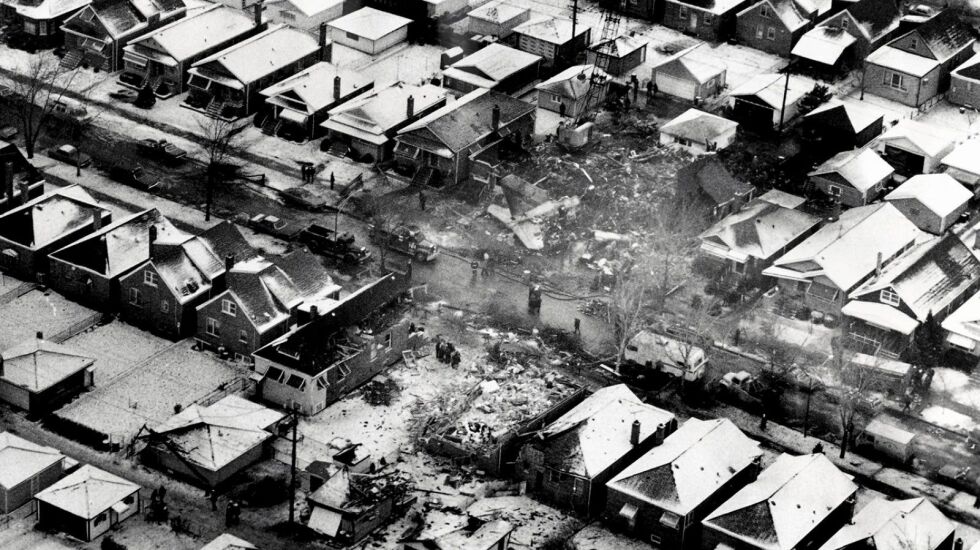
“The flight’s progress was routine until arrival in the Chicago area and the start of the approach descent,” the report reads.
The plane followed another, smaller aircraft as it approached Midway. Air traffic controllers tried to maintain adequate distance between the two planes by requesting speed adjustments, but when the first plane still couldn’t clear the runway in time Flight 553 was issued a “missed approach clearance.” However, the spoilers were already deployed and a slow response from the crew caused the plane to stall as it attempted to circle around, according to the NTSB.
“The rush of cockpit activities during the final descent caused a breakdown of safeguards inherent in the task-sharing of a crew,” the NTSB report reads. “The error-provoking environment set the stage for the crew’s failure to notice that the spoilers were still extended at level-off and to arrest the rapid deterioration of airspeed that followed.”
Of the 61 people aboard the plane, only 18 survived. Among those who died were U.S. Rep. George Collins, CBS news correspondent Michele Clark and Dorothy Hunt, wife of E. Howard Hunt, who was being investigated for connections to the break-in at the Watergate Hotel. When word got out about the plane’s high-profile passengers, conspiracy theories began to spread, in part, thanks to a Chicagoan named Sherman Skolnick.
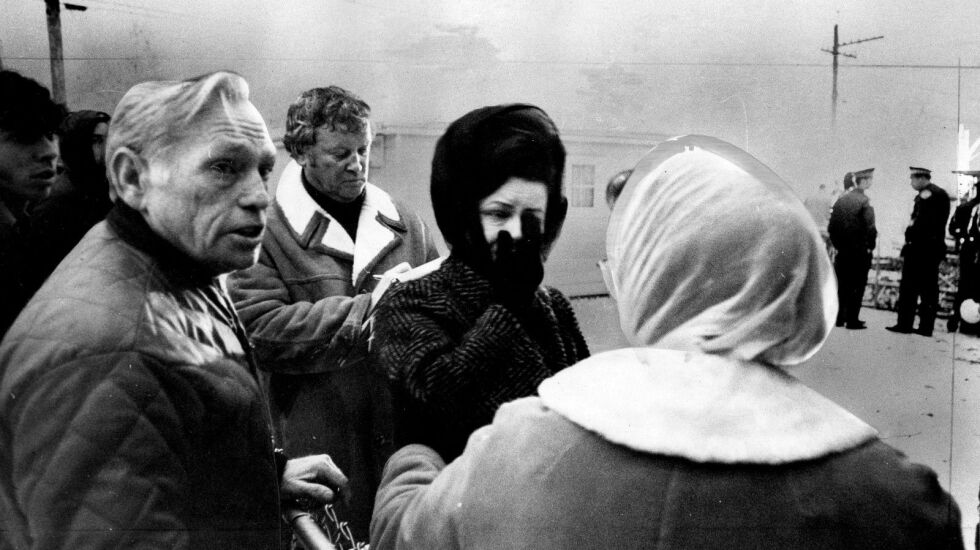
Paul Durica of the Chicago History Museum said Skolnick was a “citizen journalist” with a penchant for “rooting out political corruption.” In the ’60s, Skolnick exposed corruption at the Illinois Supreme Court. Two justices eventually resigned, although they denied guilt. After the crash in 1972, Skolnick became convinced the United Airlines crash was part of a Watergate coverup, Durica said.
“He actually, at a public hearing, shares all his findings and because of that, this kind of larger conspiracy sort of takes root,” Durica said. “People see what he’s doing, and other people kind of continue the investigation.”
The NTSB found no proof the accident was caused by anything other than crew errors and ruled the cause of the crash to be “the captain’s failure to exercise positive flight management” during landing, saying the investigation revealed no “evidence of sabotage or foul play in connection with this accident.”
‘The tragedy could have been even worse’
On nearby Hamlin Avenue, classes had been dismissed for the day at Queen of the Universe Catholic school but students were still in the area at the time of the accident, according to Tribune reports at the time. Durica said there was almost immediately an awareness that “the tragedy could have been even worse” had the plane hit the school.
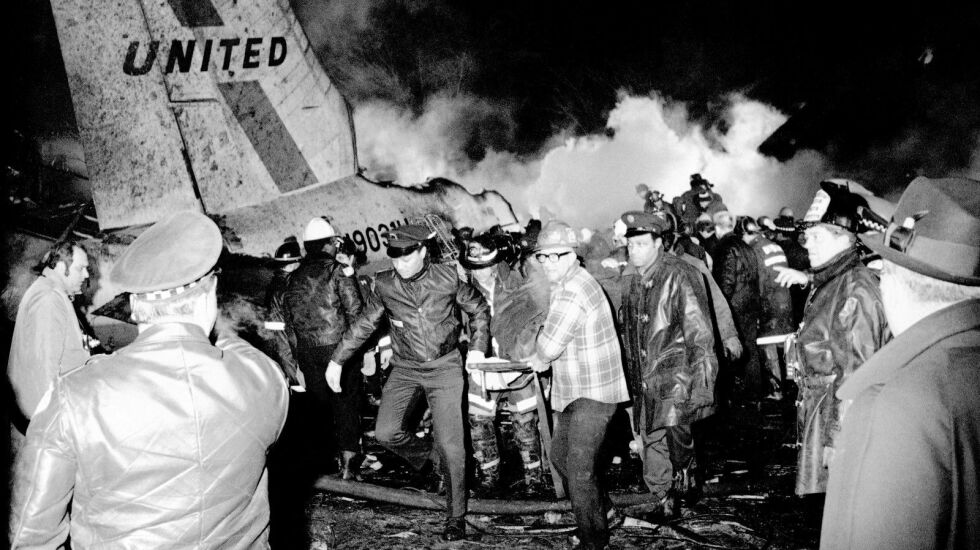
David Toth, who was 10 years old at the time, said he was walking home from Queen of the Universe when he saw the plane go down. Living near the airport, Toth was used to seeing planes fly overhead, but even to his fifth-grade eye, he knew this one was especially low and recalls thinking to himself it was going to crash. Shortly after, he saw the clouds of black smoke.
“I don’t have nightmares or anything of that nature, but yeah, seeing a plane crash is going to stay with you for the rest of your life,” Toth said.
Two days after the accident, Cardinal John Cody — then the Catholic archbishop of Chicago — visited the crash site and told reporters he felt “a tremendous sense of sorrow and yet an equal sense of gratitude.”
Now, 50 years later, the houses that were flattened have long since been rebuilt. Nearby school children, like Toth and Davidson, still remember the crash “like it was yesterday,” as Davidson put it, but the tragic accident has faded in the city’s collective memory.
“There are certain kind of tragedies in the city’s history, like the capsizing of the Eastland, or the Iroquois Theatre fire or most prominently the Great Chicago Fire of 1871, that if you were to kind of mention them casually to most Chicagoans, they would sort of have a sense of what happened,” said Durica, of the History Museum. “And I think United 553 hasn’t lived on in the collective memory in such a prominent way.”
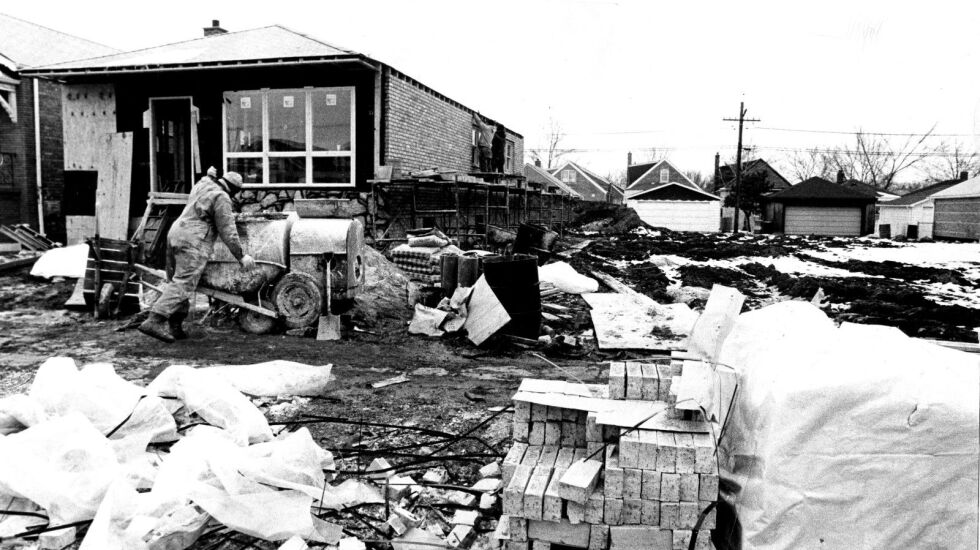
Courtney Kueppers is a digital producer/reporter at WBEZ. Follow her @cmkueppers.







